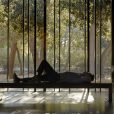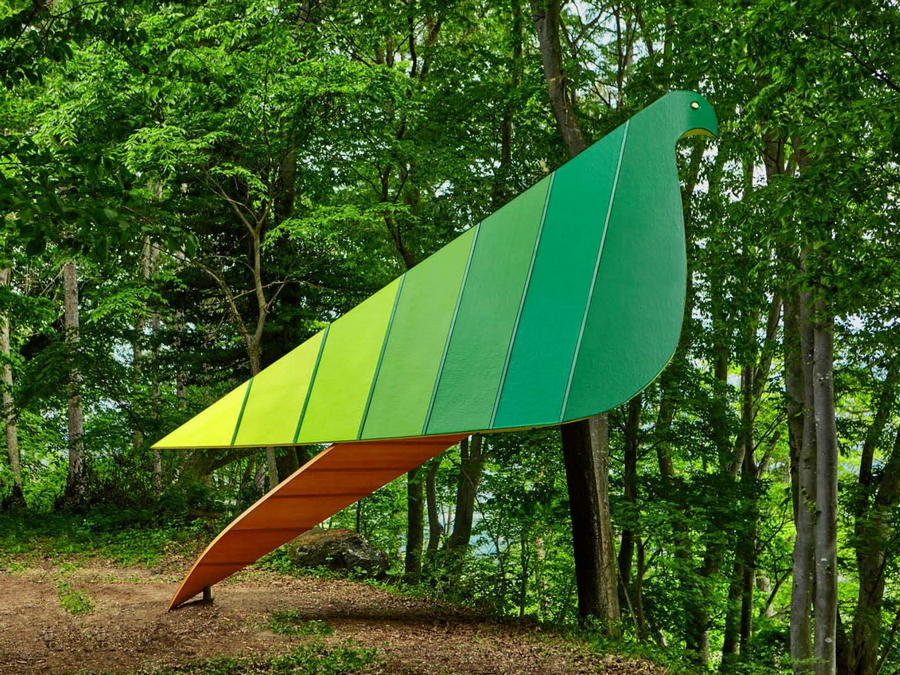CAMPS AND SHELTERS
[vc_row][vc_column][vc_column_text] CAMPS AND SHELTERS [/vc_column_text][/vc_column][/vc_row][vc_row][vc_column][vc_column_text] Arpad Zachi Confusion – camps and shelters, or concentration camps [/vc_column_text][/vc_column][/vc_row][vc_row][vc_column][edgtf_separator type="normal" position="center" color="rgba(255,255,255,0.01)" top_margin="20" bottom_margin="0"][vc_column_text]I don’t know why this

CAMPS AND SHELTERS
Arpad Zachi
Confusion – camps and shelters, or concentration camps
I don’t know why this subject and the examples selected both for the refugees camps, and for the shelters, made me think about the Maslow’s Pyramid of Needs, in fact, more about some comments subsequent to his. And, as a student said on the first meeting during the classes of the Urban Public Space at school: «Today, after 2 years of faculty, I feel more confused». Although I have immediately replied that that was good, now I’m thinking if it is, indeed, because, after 30 years of profession (professional and editorial) I am also confronting with the same state of confusion. It is true that for other reasons and from a total different perspective.
The first question / perplexity refers to the resorts that made me select and put together the two terms, the refugees camp, as a very acute form used today for the concept of concentration camp(1), and shelter(2), as masked forms of sălaș(3) / shelter for some (quite many), which, apparently, are not constraintto use it. The more so as the camp addresses to a quite large number of people and it has a temporary character, whilst the shelter has a stable character and it addresses to individuals. However, there are some features which bring them closer, namely, on one side, a certain precarity of their physical establishment, and life conditions they ensure, and, on the other side, especially their location, namely, as DEX (n. explanatory dictionary) states: «outside localities», meaning into the natural environment (non-anthropised). And today, something else brings them closer, the projects presented suggest this, the attempt to remove as much as possible this precarity, both from the physical / constructive point of view, and from the point of view of life quality and the utilities and social infrastructure, but especially to bring them closer and to integrate them within the anthropised / organized environment of the human settlements. The surprise and my «concern» (a trendy term today within the political area) is related to those speeches and approaches related to the settlement of these real problems, which transform into aspirations / possible patterns of the environment and the daily urban lifestyle, therefore, transformation of the exception, the accident, the precariousness, the temporality, into something definitive, stabile and generalized.
The second question refers to the ambiguity of attitude and option to use one or another of the two very different terms, the concentration camp, and the camp. I explain the essential difference from the origins of the two terms, concentration camp [lagar] comes from the German lager, therefore, a urban, rational, effective, organized and strictly regulated civilization, and camp comes from the Slavonic taboru, therefore, an agrarian civilization, based on beliefs, traditions and ancestral customs. In other words, whilst the concentration camp, including its way of establishment, reglementation and operation, is established precisely by a form of centralized power of the place, but it also imposes and addresses an outside group, the camp was a formula representing the will and the experience of the group using it.
And now, perhaps the most «interesting» question refers to those using these camps and refuges, and especially to their individual or / and group motivations. Whilst the refugees(4) groups are the ones abandoning a certain place due to some political, economic, social, or natural disorders threatening their lives, the individuals choosing / building a refuge try to escape (at least from time to time, and for short time) from an environment and lifestyle which is much too organized (by themselves) and over-regulated (by others). Whilst the first group is searching for the safety of a safe society, stable, and strictly organized, the second group is looking for silence and the freedom of the solitude outside the organized systems, which they perceive more or less consciously, as concentration camps. Paradoxically, the first ones enter into an environment full of restrictions and constraints unknown to them, therefore, in concentration camps, which we call euphemistically camps, and the second ones cannot quit and take with them the habits and the essential elements of the environment and their urban lifestyle. Illusions and utopia, imagery and fantasy, ambiguities and confusions, and especially resentment and masked, hidden frustrations.
References:
- CONCENTRATION CAMP [lagăr, lagăre], concentration camps, I. 1. Place of stationary for the troops, in tents or huts; camp. 2. Place where there are kept closed and monitored the war prisoners or, during the totalitarian regimes, the people considered to be hostile to the regime. 3. (In the past) All the states and people fighting for the same social-political view – From Germ. Lager. source: DEX ’09 (2009)
- CAMP [tabără, tabere], camps, 1. Place of temporary staying of the troops, outside localities, for the purpose of training the soldiers under campaign conditions; (2). Halt; stage. 2. Temporary staying in tents, huts, etc. Settlement (outdoor) for children, pupils etc. to rest or for athletes during trainings. 5. Group in opposition with another group; Political association fighting for a certain cause. – From Sl. taborŭ. source: DEX ’09 (2009)
- SHELTER [sălaș, sălașe], shelters (Pop) 1. Shelter where someone finds temporary accommodation. 2. Rudimentary construction on the field used as temporary shelter for people and animals. 3. Settlement, home. 4. Human settlement. People living this settlement 5. Small settlement for gipsies (nomads); group of gipsy families (nomads) under the leading of a foreman – From Hung. szállás. source: DEX ’09 (2009)
- REFUGEE [refugiat, refugiati] , refugees adj., m. and f. noun (Person) who retired somewhere or to someone to shelter, find support or protection in the face of a danger, an inconvenience, etc. [Pr.: -gi-at] – V. refugia. Cf. fr. réfugié. source: DEX ’09
Windhover Contemplative Center
The Windhover Contemplative Center is conceived of as a unification of art, landscape and architecture, to both replenish and invigorate the spirit. The sanctuary is located in the heart of the campus on a former parking lot adjacent to a natural oak grove. The extended progression to the building’s entry
Birds Eye View
A team of 20 Japanese carpenters constructed the viewing house, with the structure itself forming the shape of a bird, playfully working in three dimensions as Bar’s conceptually driven illustrations do on paper. For the illustrator, it was important to retain the visual storytelling of his work, an architectural form
White dessert
White Desert is a project founded by record-breaking polar explorer, Patrick Woodhead, and his wife Robyn, that launched the first and only luxury camp in Antarctica. The project is celebrating its 10th anniversary with a refurbishment of its camp – complete with new sleeping pods, lounge and dining room. The
Mars One
Mars One aims to establish a permanent human settlement on Mars. Mars is the only planet we know of that can currently feasibly support human life and will be humankind’s first step to become a multiplanetary species. Before carefully selected and trained crews will depart to Mars, several unmanned missions
The Small House
Between 2014 and 2015, the Italian architect Bonaventura Visconti di Modrone was invited to Anse-à-Pitres, a small village in the South East Department of Haiti, to build a housing complex for Ayitimoun Yo, an N.G.O. that helps local street children.
Maidan tent
The «Maidan tent» is a tent designed so that people who live in the refugee camps can benefit of a public indoor space where they can socialize and share various activities. It is not a coincidence that the word Maidan, in Arabic, means square.
Hex house
With the prevalence of population displacement across the globe, Architects For Society has embarked on designing building solutions for them that are both dignified and cost effective.
 Romană
Romană English
English











